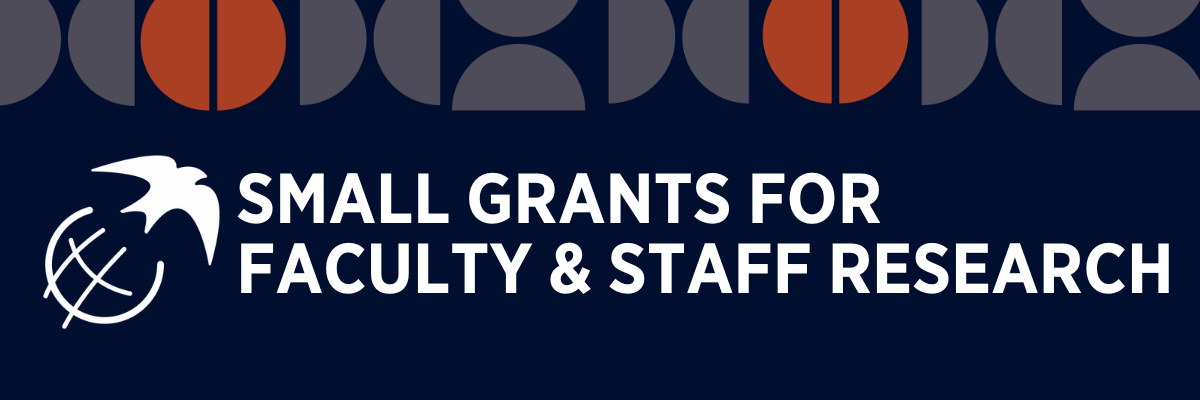
Our research grant competition for the faculty and staff supports and promotes research projects on human rights related questions. Projects should make a significant contribution to ongoing scholarly and/or policy debates in the field of human rights.
Awards will prioritize primary research, including library research, fieldwork, interviewing, historical archival research, pilot studies, data collection, and data set construction. Book preparation requests are permitted and could include copy editing, indexing, and editorial assistance. Requests to provide a subvention for an open access publication or for access to databases for research will be considered.
2024 Small Grant Recipients

Zehra F. Kabasakal Arat
Professor, Department of Political Science
"Human Rights Norms in Turkey"

Chen Chen
Assistant Professor, Department of Educational Leadership, Neag School of Education
"From Ukraine to Gaza: Identifying the “Gap” of Human Rights Discourse in Sport "

Robin Greeley, Associate Professor of Modern & Contemporary Latin American Art History
Michael R. Orwicz is Associate Professor of Art History
José Falconi
Assistant Professor of Art History and Human Rights
"Research travel to National Center for Civil & Human Rights; National Memorial for Peace and Justice"
Former Recipients
2023
- Thelma Z. Abu, Assistant Professor, Department of Geography,
- "Understanding and Responding to Issues of Water Security and Gender-Based Violence in Sub-Saharan Africa"
- Jane Pryma, Assistant Professor, Department of Sociology
- "Slow Rights: Trauma and Disability Rights"
- Catherine Masud, Assistant Professor, Department of Digital Media & Design and Gladstein Family Human Rights Institute
- "Justice Stories/Our Stories"
2022
- Jeremy Pressman, Professor, Political Science & Director, Middle East Studies & David Richards, Associate Professor, Political Science & Gladstein Family Human Rights Institute
- “Evaluating Israel’s Claim of Exceptional Negative Treatment About Human Rights Violations”
2021
- Gary M. English, Distinguished Professor, Dramatics Arts
- “Theatre and Human Rights: The Politics of Dramatic Form”
- Sandra L. Sirota, Assistant Professor in Residence, Human Rights Institute
-
- “Shaping an Education System that Works for Us: Youth-led Movements to Disrupt Systemic Racism in Education”
Eligibility Criteria & Requirements
- Open to UConn faculty, staff, and post-docs in all disciplines at any UConn campus.
- Applicant must be affiliated with UConn during the entire award period.
- Disbursement of funds is contingent upon receipt of any required IRB approval.
- Applicants may apply for both the HRI Seed Grant and the HRI Small Grant, but the recipient of the HRI Seed Grant will be ineligible to receive an HRI Small Grant in the same year.
How to Apply
Access the application via Microsoft Forms. The application requires the following materials:
- Intellectual rationale for the project, list of expected project outcomes, and methodology (three pages, double spaced, 12 point font);
- Budget narrative of research-related expenses (typically not to exceed $2000) (no more than a half page)
- Current CV
Application Deadline for 2025: April 18
Evaluation Criteria
Proposed research projects will be evaluated for overall excellence of the proposed research project on human rights issues, understood broadly. All proposals will be reviewed by a multidisciplinary committee chaired by the Associate Director of the Gladstein Family Human Rights Institute.
- Significance of the contribution that the project will make to knowledge in the field of human rights.
- Quality of the conception, definition, organization, and description of the project.
- Feasibility of the project, including rationale for the budget.
- Additional priority may be given to applications from junior faculty and those faculty who have not received this grant in recent years.
- Applications that do not follow the guidelines for page length and supporting documents will not be considered.
Questions about the competition? Please email humanrights@uconn.edu or call 860-486-5393.